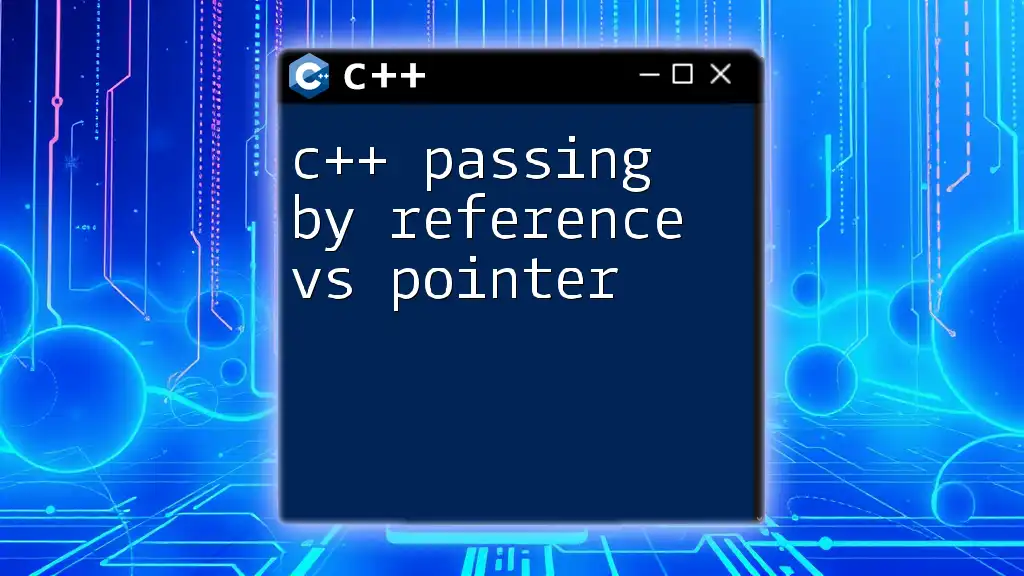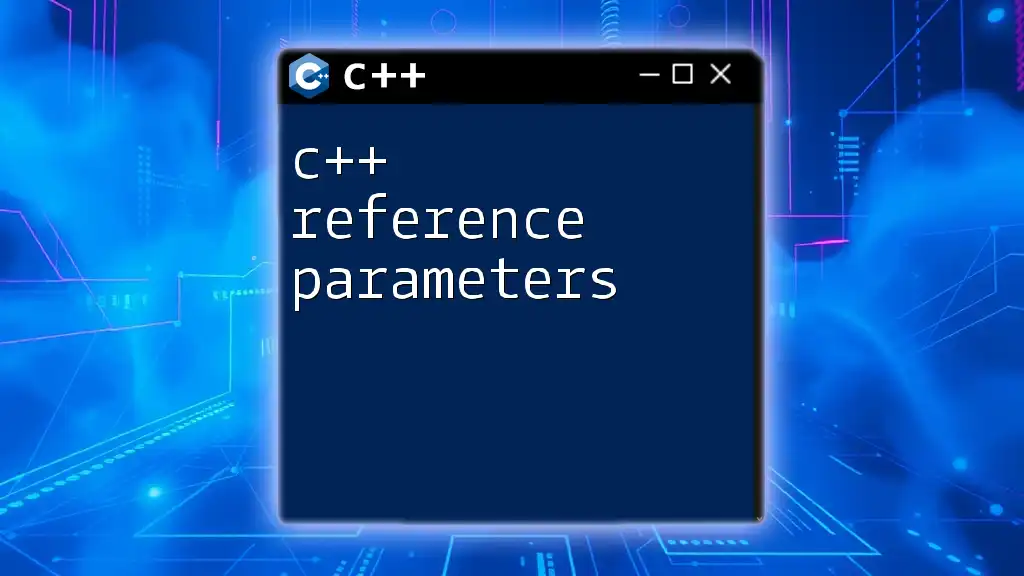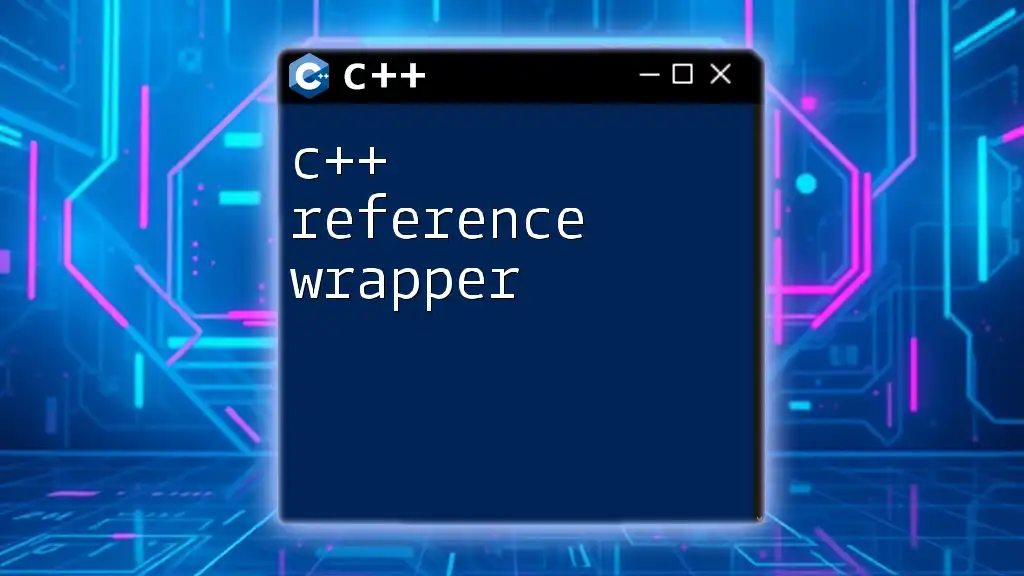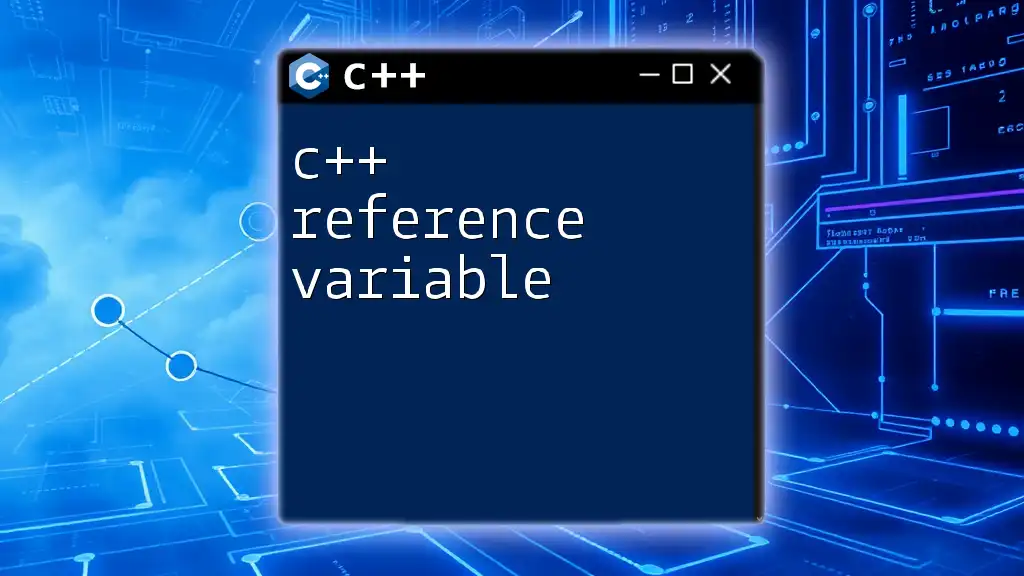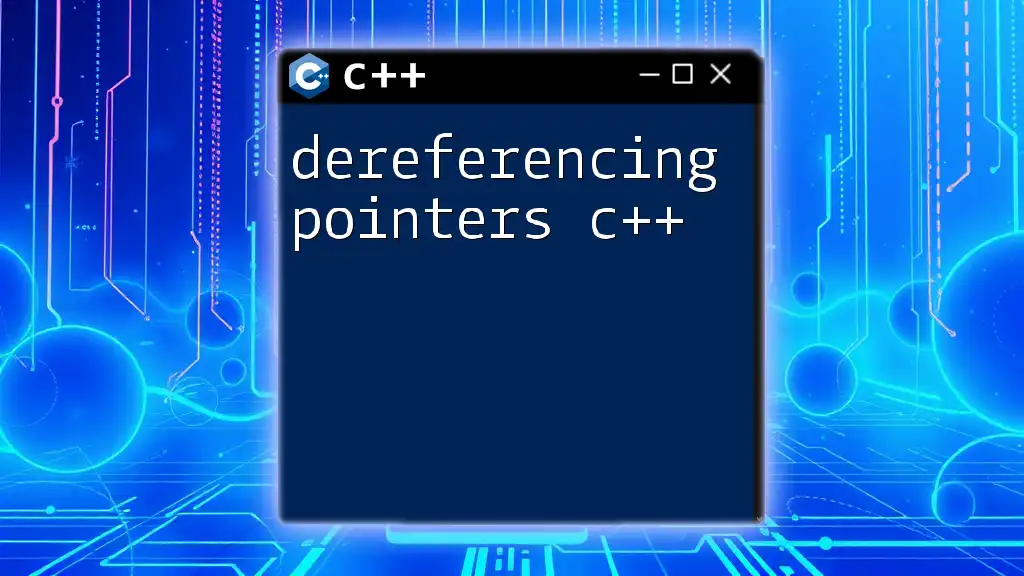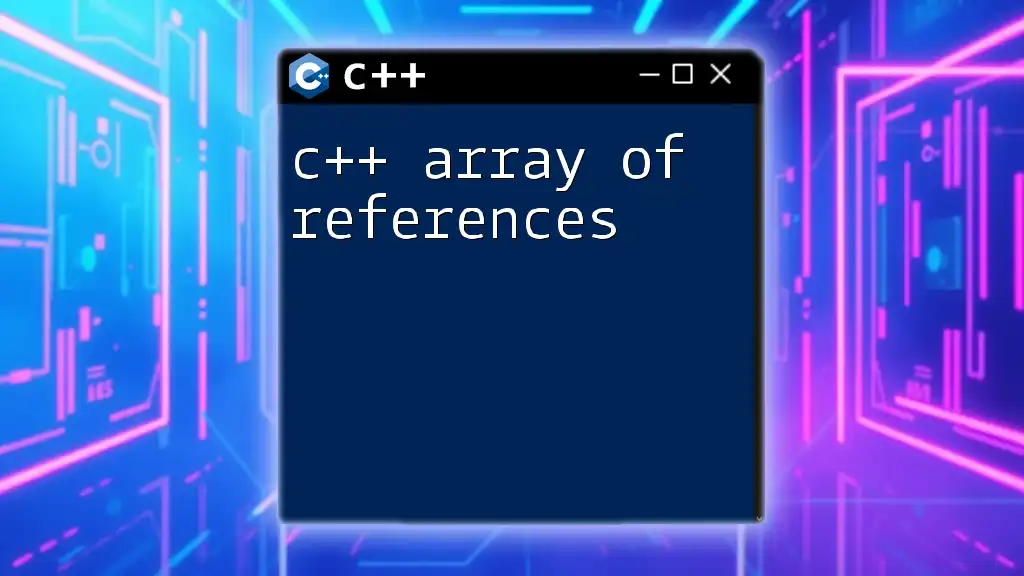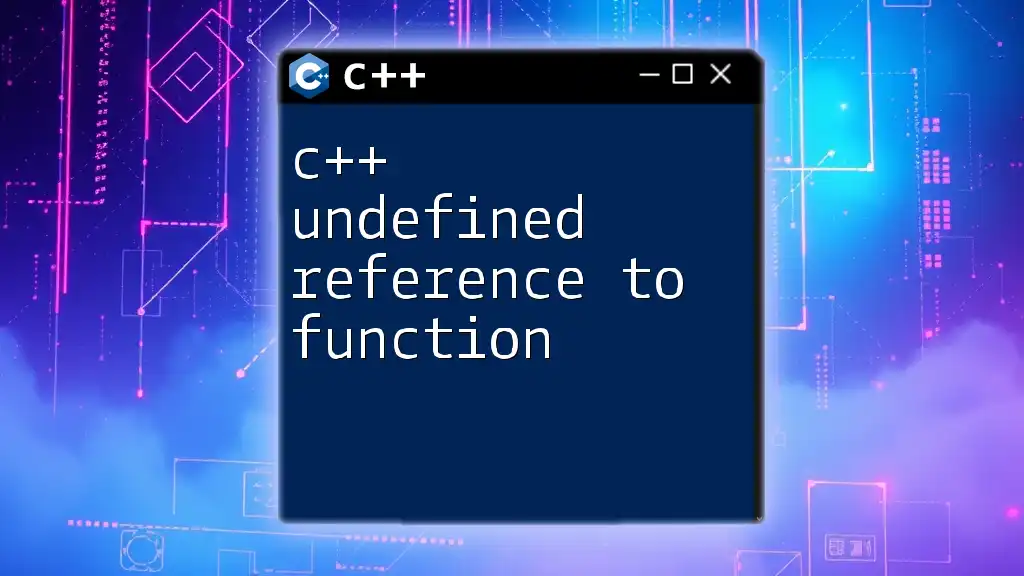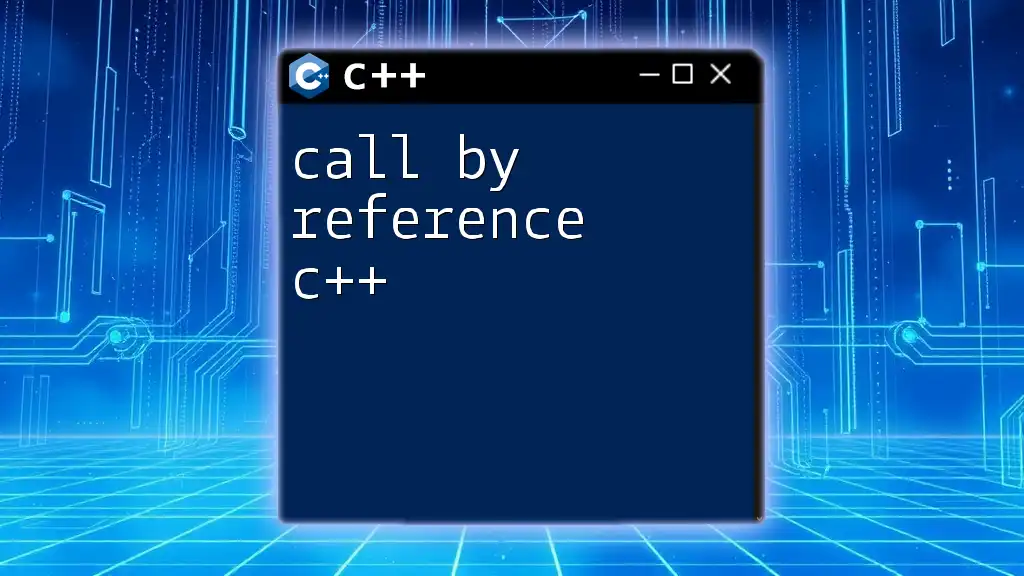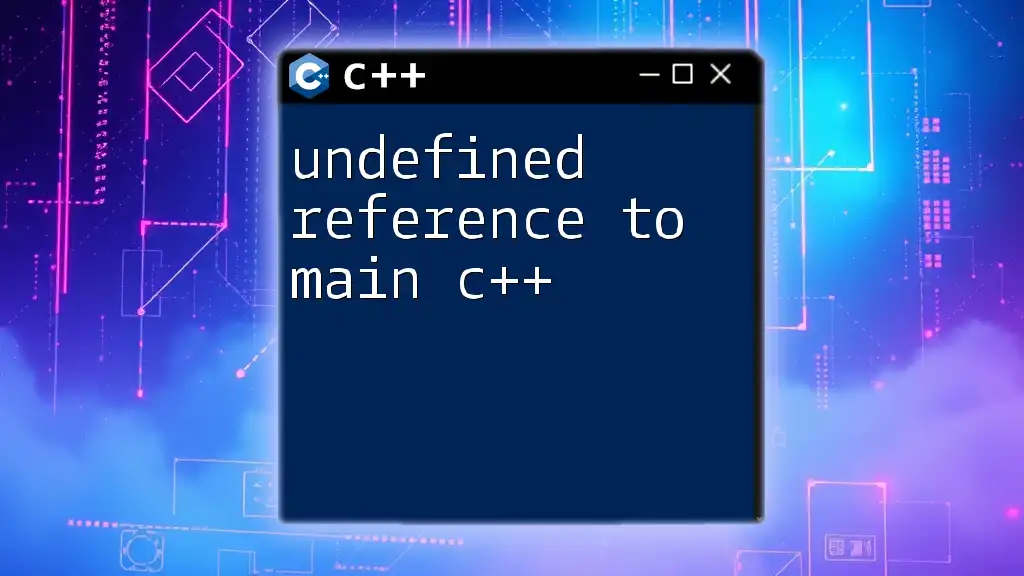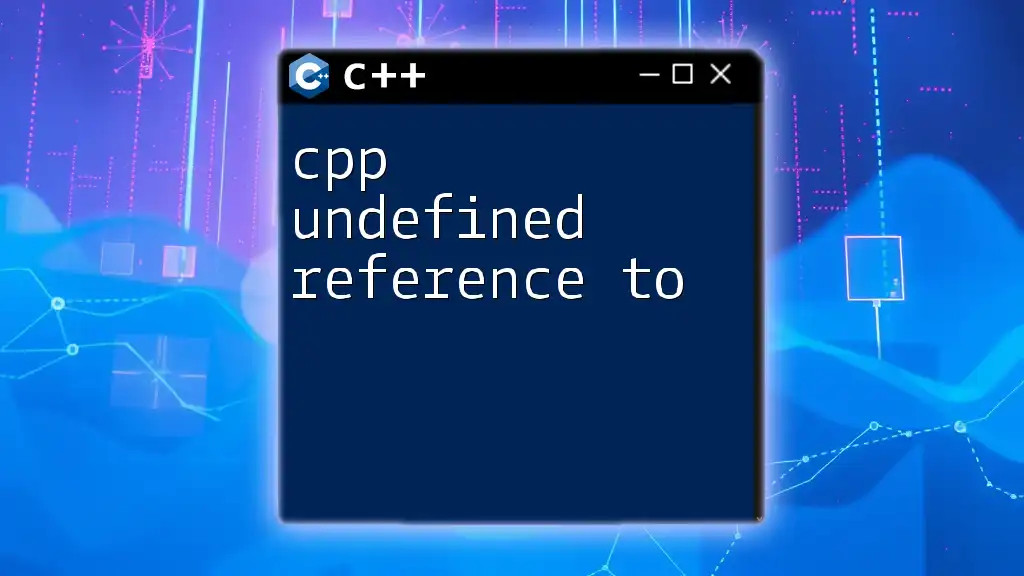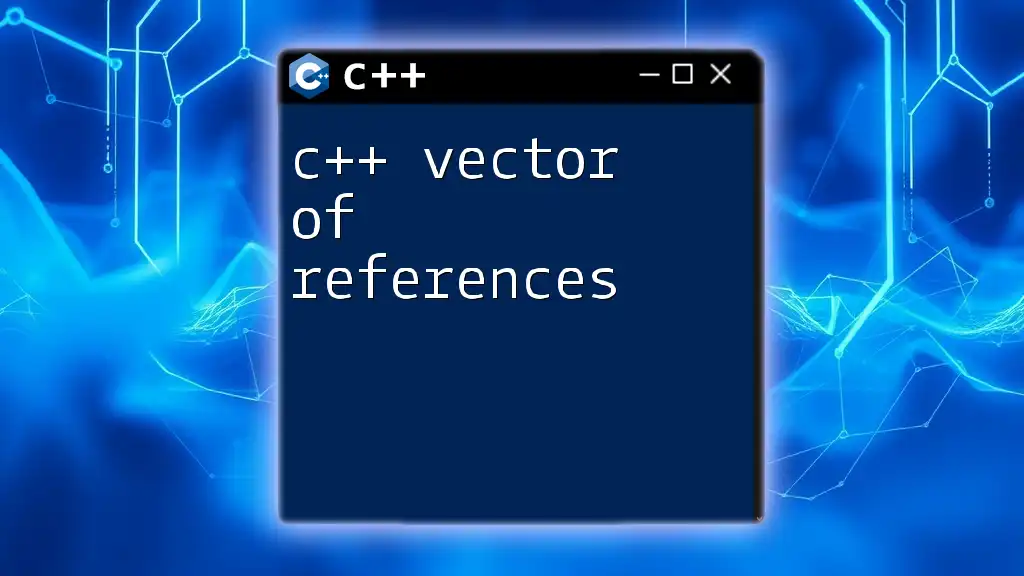In C++, passing by reference allows you to directly modify the original variable without using pointers, while passing by pointer requires dereferencing to access or modify the variable; here's a quick comparison:
#include <iostream>
// Passing by reference
void passByReference(int &ref) {
ref += 10;
}
// Passing by pointer
void passByPointer(int *ptr) {
*ptr += 10;
}
int main() {
int a = 5;
int b = 5;
passByReference(a);
passByPointer(&b);
std::cout << "a (by reference): " << a << std::endl; // Outputs: 15
std::cout << "b (by pointer): " << b << std::endl; // Outputs: 15
return 0;
}
Understanding the Basics of C++
What is C++?
C++ is a powerful programming language widely used for system/software development, game development, and high-performance applications. It builds on the foundational concepts of C while introducing object-oriented programming (OOP) principles, which allow developers to create complex programs more efficiently.
Key Concepts in C++
In C++, variables are used to store data, functions represent blocks of code to execute specific tasks, and memory management is crucial for effective application performance. Understanding how to manipulate these elements, especially in terms of parameter passing, is essential for any C++ developer.
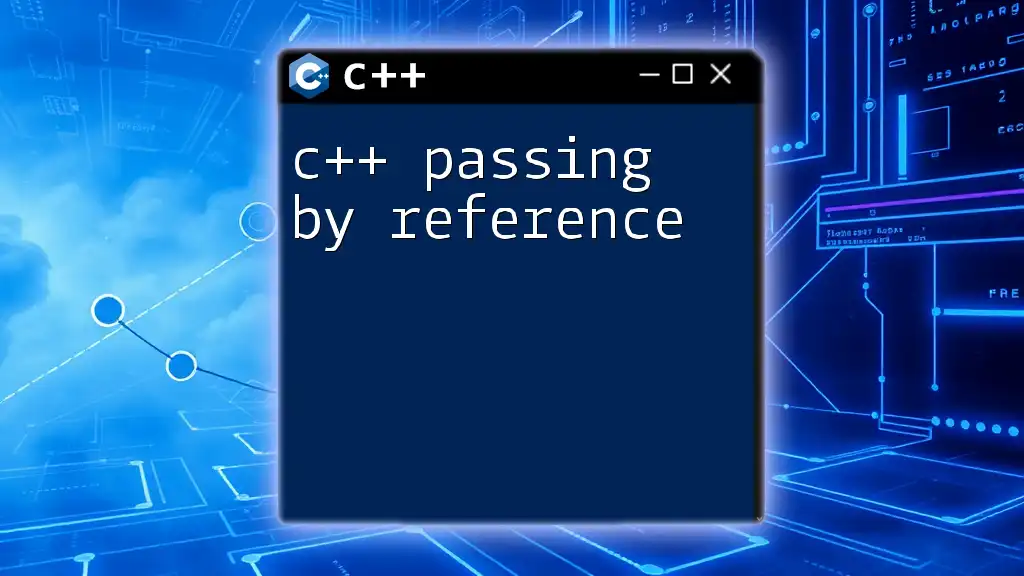
The Importance of Function Parameter Passing in C++
Why Parameter Passing Matters
Function parameter passing is crucial for performance and memory management. When functions manipulate large data structures, understanding how parameters are passed can drastically impact both speed and resource utilization. In real-world scenarios, such as game development or data processing, using the right passing technique is key to ensuring efficiency and maintaining system resources.
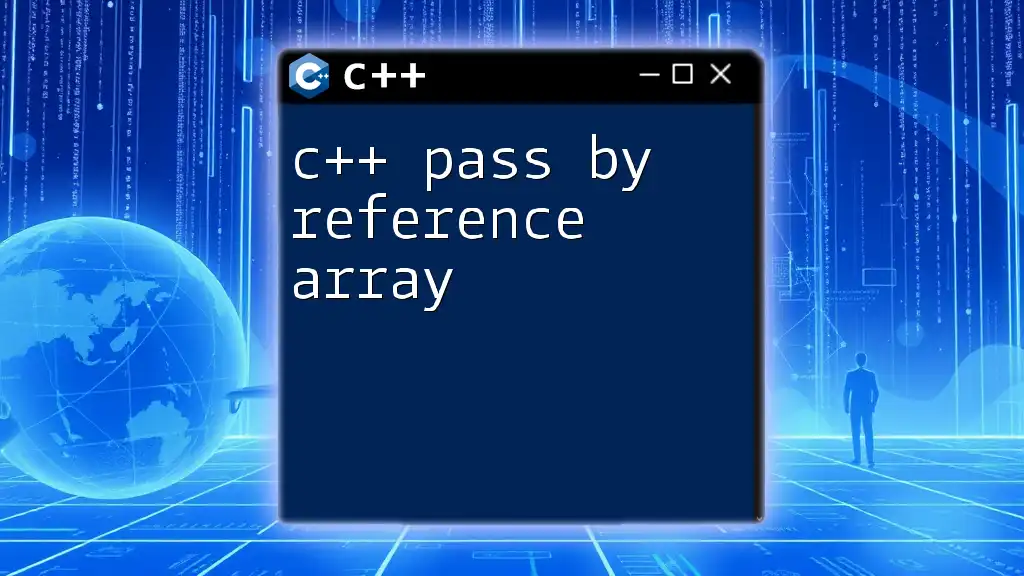
C++ Pass by Value vs. Pass by Reference vs. Pointer
What is Pass by Value?
When you pass parameters by value, a copy of the actual data is made. This means that any modifications to the parameter inside the function do not affect the original variable outside the function.
Consider the following example:
void passByValue(int value) {
value += 10;
// This change won't affect the original variable
}
int main() {
int number = 5;
passByValue(number);
// number remains 5
}
In this example, `number` remains unchanged after the function call because only a copy of its value was modified.
What is Pass by Reference?
In contrast, passing by reference means that you pass the actual variable rather than a copy of it. This allows the function to modify the variable directly.
For example:
void passByReference(int &value) {
value += 10;
// This change will affect the original variable
}
int main() {
int number = 5;
passByReference(number);
// number is now 15
}
Here, since `number` is passed by reference, its value is modified directly within the function.
Benefits of Using Pass by Reference
Pass by reference offers several advantages:
- Performance: It avoids the overhead associated with copying large objects.
- Memory Efficiency: No additional memory is allocated for function parameters.
What is a Pointer?
Pointers provide a way to store the address of a variable in memory. They can also be used to pass values to functions, similar to references.
Here's an example:
void passByPointer(int *value) {
*value += 10;
// This change will affect the original variable
}
int main() {
int number = 5;
passByPointer(&number);
// number is now 15
}
In this code, we pass the address of `number` to the function, allowing the function to modify the original variable.
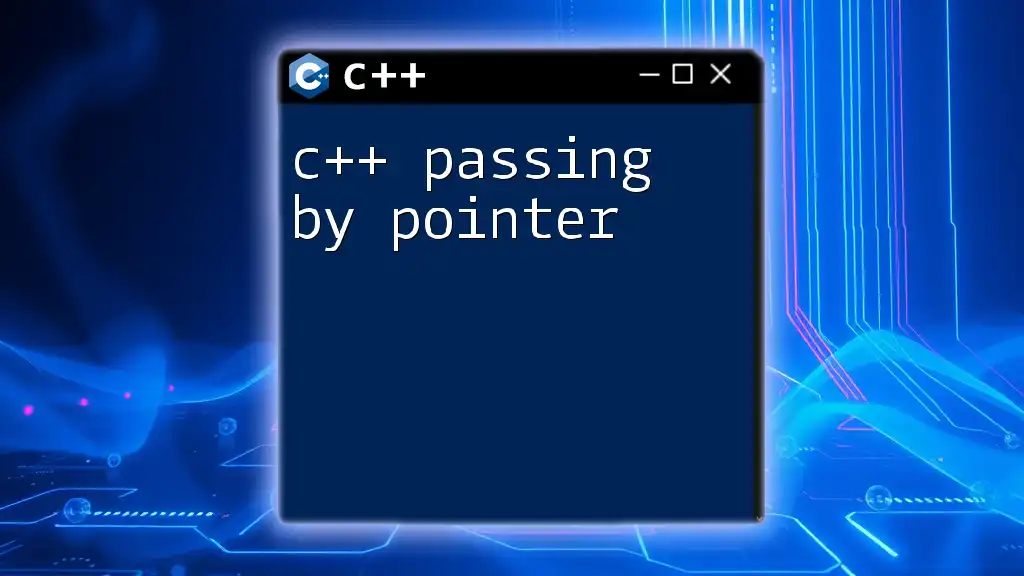
Key Differences Between Passing by Reference and Pointers
Syntax and Usage
The syntax for passing by reference uses the `&` operator in the function signature, while pointers use the `*` operator. For instance:
-
Pass by Reference:
void functionName(Type ¶m) { /*...*/ } -
Pass by Pointer:
void functionName(Type *param) { /*...*/ }
Safety and Performance
Pass by reference is generally safer, as it cannot be null, unlike pointers. A dangling pointer can cause serious errors in your program. However, pointers can provide more flexibility, such as dynamic memory allocation.
Memory Management
When using references, memory is handled automatically. With pointers, it’s important to manage memory manually to avoid leaks. For example, when you allocate memory with `new`, you must release it with `delete`, or else the memory will not be freed.
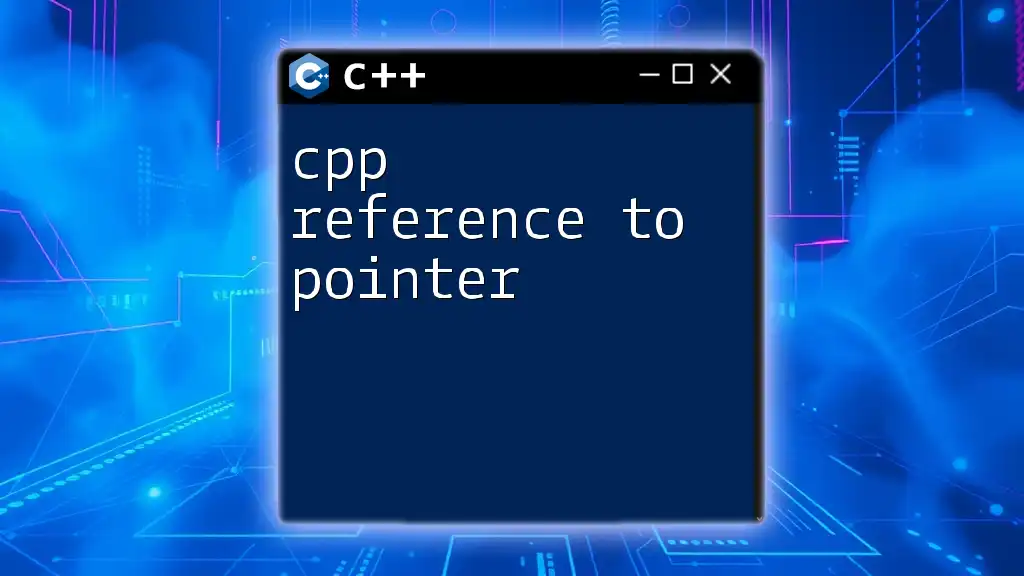
Use Cases and Best Practices
When to Use Pass by Reference
Pass by reference is ideal when working with large data structures such as objects and arrays. It allows you to manipulate data directly without incurring the overhead of copying.
Example:
void modifyValues(std::vector<int> &vec) {
for (auto &val : vec) {
val *= 2; // Modifies the vector directly
}
}
This method ensures that the vector is modified in place, enhancing performance.
When to Use Pointers
Pointers should be used when you need to manipulate memory directly or when dealing with dynamic allocations. They are particularly useful in scenarios such as:
- Implementing linked lists
- Managing arrays dynamically
Example:
void allocateMemory(int **ptr) {
*ptr = new int; // Dynamically allocating memory
**ptr = 25; // Assigning a value to the allocated memory
}
In this case, the pointer allows for dynamic memory allocation, which is critical for certain data structures.
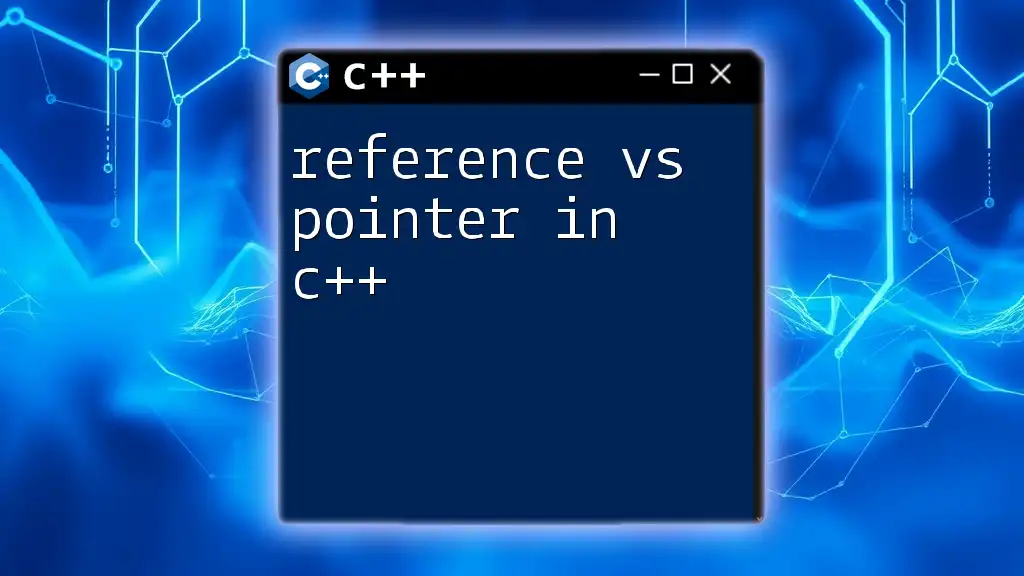
Common Misconceptions
Confusion Between References and Pointers
One common misunderstanding is that references and pointers perform the same function. Although both allow functions to modify the original variable, references cannot be null or re-assigned once set, while pointers can, adding complexity and potential errors.
Myths about Memory Safety
Many developers fear that using pointers is inherently unsafe and will lead to memory corruption. While it’s true that misuse can result in such issues, sticking to best practices—like always initializing pointers and using smart pointers when possible—can significantly mitigate these risks.
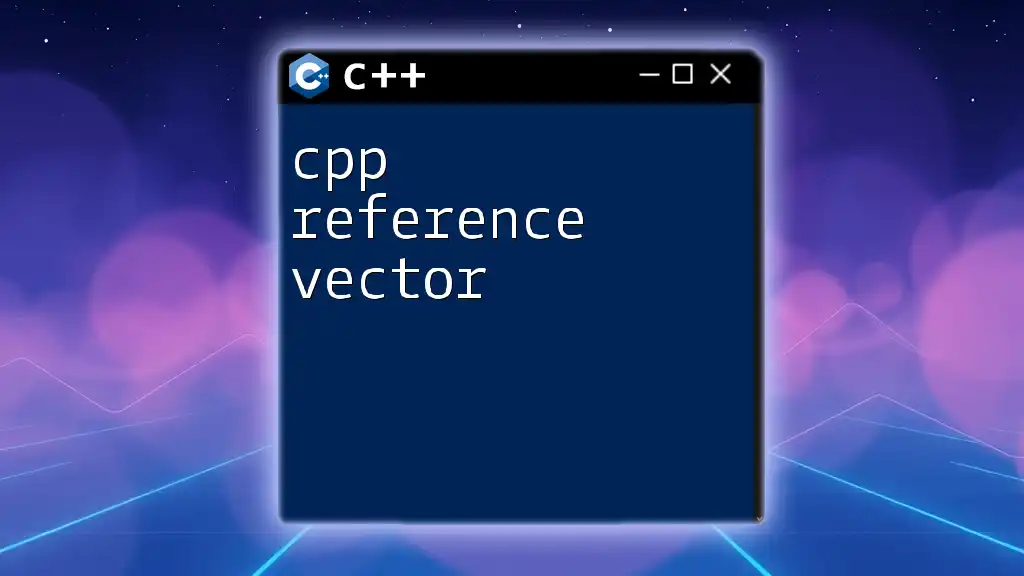
Conclusion
Summary of Key Points
In C++, the choice between pass by reference and pointers hinges on specific use cases. Pass by reference is more efficient for large data modifications, while pointers are suited for dynamic memory use and low-level programming tasks.
Final Thoughts
Understanding the distinctions and appropriate applications of C++ passing by reference vs pointer is vital for efficient coding practices. By selecting the right technique based on your specific programming needs, you can enhance both performance and safety in your C++ projects.
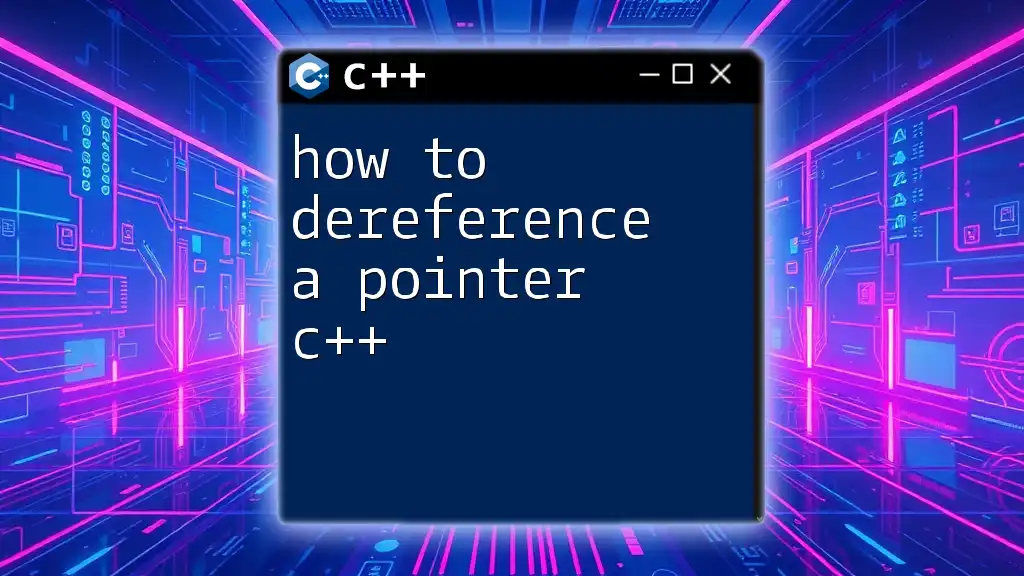
Additional Resources
Further Reading
Delve into books and online resources dedicated to C++ programming, focusing on memory management and parameter passing strategies to expand your knowledge base.
Practice Problems
Engage with practical exercises that revolve around the concepts of pass by reference and pointers, solidifying your understanding through implementation.

